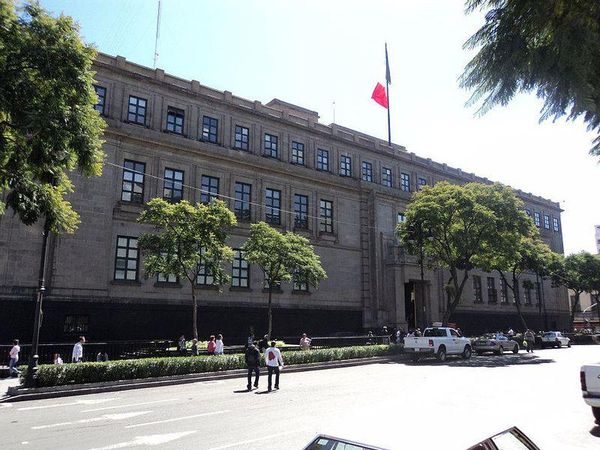- A ruling protects the members of the Sociedad SMART, which has been permitted to grow, harvest, possess and transport marijuana for personal consumption. Although the ruling only benefits them directly, it enables any party to request similar protection, although it will be up to the Supreme Court to grant them the same privileges. This resolution paves the way for other users, and marks the beginning of the end for prohibition.

The Mexican Society for Responsible and Tolerant Consumption (SMART), since its inception in 2013, has always aimed to foster debate on the legalisation of marijuana in Mexico, which has become the world's second largest producer of cannabis and the main exporter to the United States.
As a result, and given that cannabis consumption was decriminalised in 2009 (although it is punishable administratively) months ago the group asked the Mexican Ministry of Health for permission to plant, prepare, possess and transport grass for recreational consumption.
As expected, their request was rejected by the authorities, who argued that it violated public health laws. The group then decided to go through the legal channels, filing appeal after appeal, until they reached the nation's Supreme Court.
Despite all the denials and rejections that they encountered along the way, their case ended up in the hands of Judge Arturo Zaldívar, one of the institution's most progressive, who decided to support them, and do all he could so that his four fellow colleagues on the bench would do the same.
To that end, on October 28 Zaldívar expressed his support for the appeal filed by four members of SMART, announcing that he would seek to declare several articles of the General Health unconstitutional, in an effort to lift the siege against cannabis and its users.

The judicial ruling, which many had awaited for days due to its historical importance, was made official on November 4 and, although it does not entail the legalisation of cannabis for recreational purposes, it does open the door for this to happen. Humberto Castillejos, legal adviser to the President's Office, explained that marijuana "damages personal and public health, so it is constitutionally valid for the Mexican State to regulate it." Nevertheless, he stated that absolutely prohibiting cultivation for personal, recreational use constitutes "excessive regulation."
Hence, the highest court acknowledged, with a four-vote majority, the rights of the four SMART members who filed the appeal. The local media even concluded that the Court had essentially said "yes" to marijuana.
These users will be able to plant, grow, harvest, prepare, possess and transport marijuana for self- consumption purposes without being punished for it, criminally or administratively. In addition, no other parties but the beneficiaries of the ruling will be able to appeal the decision, to prevent criminal sanctions provided for under the law. This is, however, still an important step, as it is the first protection measure covering marijuana provided by the country's highest judicial body, and could establish jurisprudence in this area.

In any case, the marketing, sale and transfer of cannabis to others are still prohibited and punishable. In addition, as stated by Zaldívar, marijuana may not be consumed in ways that may affect third parties in any manner. Nor may it be smoked in front of others without their express consent. Thus, its use is not permitted in public places or by minors. Similarly, consumption continues to be prohibited at work when an employee's job involves ensuring the safety of others, such as drivers.
It will be Cofepris, the Federal Commission for Protection against Health Hazards, attached to the Ministry of Health,that is responsible for granting the permits. However, the entity is not required to provide the four users with seeds.
Precisely for this reason, Jorge Mario Pardo Rebolledo, one of the judges involved in the ruling, came out against protection right from the start. He argued that, although marijuana consumption and cultivation is allowed, buying seeds is still a crime in the country, so he believes it will be difficult to ensure the new exclusive rights granted to the four members of SMART. At the end of the day, "the first link in this chain of consumption is still classed as a crime."

Cofepris will also have to determine the amount of grass that can be grown and possessed, although it will probably be the Legislature that must decide on this first.
Based on Zaldivar's decision, moreover, the recent ruling declares partially unconstitutional five articles of the General Health Law (235, 237, 245, 247 and 248), which had previously prohibited the planting, cultivation and possession of cannabis for personal consumption.
However, this unconstitutionality generates a legal contradiction, as it does not invalidate other criminal and administrative laws affecting marijuana. Therefore, full decriminalisation of the substance would require a legal amendment. According to Mexican lawyers, in order for this decision to have broader repercussions, the Court would have to rule on five requests for protection in the same way; in this way jurisprudence would invalidate the articles of the aforementioned General Health Law.
Thus, for other people to use cannabis for recreational purposes and enjoy the same privileges as those held by SMART, they will have to file their own requests independently, although they can always count on the group's counsel, according to their attorney.

During the discussion of the request Judge Olga Sánchez Cordero supported the group, taking into account the intense paternalism that weighs upon users. However, she also expressed concern regarding the "minimum health and public order protection" that this could lead to. Meanwhile, Judge José Ramén Cossio announced his vote in favour, although he regretted that they had not consulted public universities or scientists in order to further buttress the grounds for the ruling.
He also regretted that the decision did not call for a re-examination of the country's drug policy: "We must urge all the Mexican state authorities involved in national public policy on drugs to revise the prohibitionist model," he said. He believes that the regulatory framework must be reconsidered in order to prevent human rights violations, and so that the problem can be approached from a public health point of view. However, his idea was not approved.
Meanwhile, Judge Arturo Zaldívar continues to believe that the general ban is "disproportionate" and contrary to the free exercise of users' rights, such that deciding on the responsible use of cannabis should be up to each individual.
Currently, if more Mexicans want permission to cultivate marijuana they will have to file for protection. As SMART and Zaldívar argued that the ban is contrary to the free exercise of users' rights, anyone requesting protection should be granted it - but this will be up to the courts. This decision paves the way and, if many go the same route, and the high court rules as it just has, legalisation in Mexico could be just around the corner.



Comments from our readers
There are no comments yet. Would you like to be the first?
Leave a comment!Did you like this post?
Your opinion about our seeds is very important to us and can help other users a lot (your email address won't be made public).